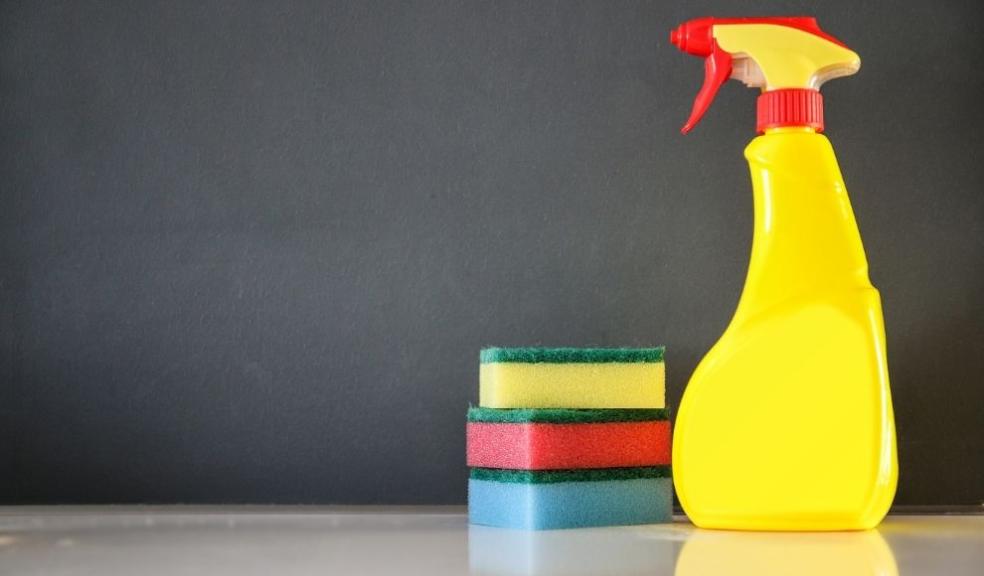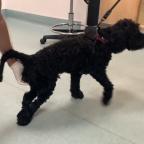
The Cleaning Products You Should Never Use Around Your Pets
|
Dog-owners know just how hard it can be to keep a clean home when you've got one or two mucky pups living under your roof. Sadly, not all cleaning products are safe to use when our four-legged friends are around, as they are hypersensitive to the strong odours and fragrances, which could lead to various health issues including irritation, sickness and breathing difficulties. Head Vet, Sean McCormack at tails.com has shared some of the most harmful, household cleaning products which may be affecting the long-term health of your pet. The full content is available below or in a Google Document format on request. The Cleaning Products You Should Never Use Around Your Pets Bleach Bleach is one of those cleaning products that even folks with a more laid back attitude to cleaning tend to keep in the house. However, the high chlorine content in bleach means that it can be incredibly harmful to your dog if they get too close to it or ingest it. Your pup's extremely sensitive sense of smell also means that they will find the potent scent of bleach incredibly irritating on their nose and throat, and it could even lead to breathing problems if they are exposed to it for too long. To keep your dog safe, Sean McCormack recommends that "if you have used bleach for cleaning in the house, make sure to rinse the area down thoroughly with water, then allow the area to completely dry before letting your pet near it. "Not every household stain will require bleach to clean it. As well as looking into what pet-friendly cleaning products there are on the market, you may also consider using natural cleaning situations such as baking soda, vinegar and lemon juice to tackle stains whilst limiting the presence of potentially unsafe chemicals in your home". Air Fresheners Products such as air and carpet fresheners can be harmful to your dog, as most of them contain a chemical called phthalates. While this chemical does help to eliminate odours from your home, it can make your pet fall ill if they inhale it. "If your home is in need of a freshening up, make sure that your pet is out of the room when you spray things like air fresheners and allow five minutes to let the air settle before letting your pet back in. Alternatively, see if any household odours can be naturally eliminated simply by leaving a window open for a couple of hours. This will ensure that your pet is not breathing in anything that they shouldn't be". Disinfectants Be wary of a chemical called benzalkonium chloride, which is a common ingredient in several disinfectants including household bathroom and kitchen surface sprays. In small amounts, this chemical is relatively safe, but repeated use of any disinfectants containing benzalkonium chloride can cause this strong chemical to linger, which can potentially cause irritation on your dog's paws, eyes and nose. "Naturally disinfectants do more good than harm as they help to eliminate nasty bacteria and viruses from our home. Just bear in mind that some disinfectants are designed to be diluted with water to make them less harmful and longer-lasting, so follow any labelled instructions accordingly. Also make sure that any cleaned areas have completely dried before allowing your dog near it, as this will reduce the likelihood of irritation". Ammonia A surprisingly large number of cleaning products including oven and floor cleaners and multi-surface sprays all contain ammonia. While ammonia is very effective at removing tough stains, it is also an extremely toxic chemical to our furry friends and can cause severe levels of irritation to their skin, eyes and nose if they get too close to it. "It is worth considering what other all-natural cleaning products there are on the market. While these products can be slightly more expensive, the peace of mind in knowing that your dog is safe from harm while you're cleaning will be worth the extra pennies. "Ulcers or sores on either your dog's skin, paws, mouth or tongue can be a tell-tale sign that your dog has licked or stepped on a cleaning product that they should not have. If you spot an ulcer, or if your dog's skin looks generally sore, seek immediate help from your vet". Laundry detergents Laundry detergents, or washing powder, can be harmful to our pooches as many of them contain ionic surfactants. When this substance combines with water it is perfect for cleaning our clothes, but should even a small amount of it be ingested by a dog, it can cause them to become seriously ill. You may also find ionic and anionic surfactants in products like hand soap, shampoo and dishwasher tablets, so be sure to read the labels of whatever cleaning products you bring into your home. "Dogs are naturally curious and like to use their mouth to explore things. Therefore, you should always keep your detergents and any other cleaning products, in a securely locked cupboard or in a high place that your dog cannot reach. "If your dog has ingested any of these products, perhaps while your back was turned, the first sign you should look out for is an upset stomach, which your dog may express through vomiting, diarrhoea, frequent drooling and being put off their food. If they display any of these symptoms, seek veterinary attention immediately". |







